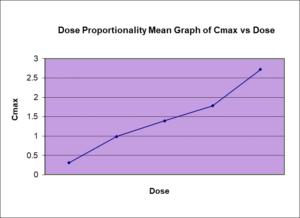Clinical Study Report Development: Bioequivalence-Generic Products

As a drug development sponsor, you know that creating a Clinical Study Report (CSR) is a critical part of the drug development process. It is a crucial component for regulatory agencies when determining whether to approve a drug for market. However, creating a compliant CSR can be a complex and time-consuming process.
It is essential to choose the right Contract Research Organization for this task. In this blog, we will explore why BioPharma Services Inc. (BPSI) should be your next CRO choice for clinical study report development. BPSI has extensive experience in developing ICH-compliant CSRs for all phases of clinical trials, including generic comparative bioavailability and bioequivalence studies. Their expertise in this field, attention to detail, and commitment to quality make them a top choice for drug development sponsors looking for a reliable and efficient partner for their clinical study report development needs.
Developing The Clinical Study Report
A Clinical Study Report or ‘CSR’ is a critical document that describes the methodology, statistical analysis, safety evaluation and results of a clinical trial in drug development. ICH E3 guideline, one of the guidelines developed by the International Council for Harmonisation of Technical Requirements for Pharmaceuticals for Human Use (ICH) which is categorized under Efficacy Guidelines, dictates the overall structure of a clinical study report and defines the content within each section. A clinical study report for the different Phases of a clinical trial, including the CSR for generic comparative bioavailability (BA) and bioequivalence (BE) studies, needs to comply with ICH E3 guideline.
A generic BA/BE study can be conducted as a pilot and pivotal study. A pilot bioanalytical study is a preliminary comparative bioavailability study conducted before proceeding with a pivotal BE study to test and confirm the feasibility and reliability of the study design and analytical methodology. The results of a pilot bioanalytical study can be used to ensure that the pivotal study is conducted in the most effective and efficient manner possible.
A pivotal bioequivalence study is a comprehensive study designed to demonstrate that the test product is bioequivalent to the marketed reference product and therefore can be expected to have similar efficacy and safety profiles. The purpose of a pivotal bioequivalence study is to support the regulatory agencies’ approval of the test product. The information presented in the clinical study report of a pilot and pivotal studies supports the comparative bioavailability and safety of test products and ensures that they are of high quality and meet the regulatory agencies requirements for approval.
A clinical study report can be written as a full report or an abbreviated report. A full clinical study report is written for pivotal Bioequivalence studies. However, an abbreviated clinical study report can be prepared for pilot studies. The clinical study report described in ICH E3 is an “integrated” full report of a study in which the clinical and statistical description and analyses are integrated into a single report, incorporating tables and figures into the main text of the report, or at the end of the text, and with appendices containing the clinical trial protocol and ethics approval, sample case report forms, investigator related information, information related to the test drugs/investigational products, statistical methods, related publications, volunteers data listings, and statistical results.
Standard components of an ICH-compliant full clinical study report of a pivotal BE study include the following sections:
- 1 – Title page
- 2 – Synopsis
- 3 – Table of contents for the individual clinical study report
- 4 – List of abbreviations and definitions of terms
- 5 – Ethics
- 6 – Investigators and Study Administrative Structure
- 7 – Introduction
- 8 – Study Objective
- 9 – Investigational Plan
- 9.1 – Overall Study Design and Plan: Description
- 9.2 – Discussion of Study Design, Including the Choice of Control Groups
- 9.3 – Selection of Study Population
- 9.4 – Treatment
- 9.5 – Safety Variables
- 9.6 – Data Quality Assurance
- 9.7 – Statistical Methods Planned in the Protocol and Determination of Sample Size
- 9.8 – Changes in the Conduct of the Study or Planned Analyses
- 10 – Study Patients/Subjects
- 11 – Bioequivalence Evaluation
- 12 – Safety Evaluation
- 13 – Discussion and overall conclusions
- 14 – Tables, figures and graphs referred to but not included in the text.
- 15 – Reference List
- 16 – Appendices
Standard appendices which need to be presented in the clinical study report appendices of pilot and pivotal bioequivalence studies include the following information according to the ICH E3 guideline:
- 16.1 Study Information such as:
- 16.1.1 Protocol and protocol amendments.
- 16.1.2 Sample case report form (unique pages only).
- 16.1.3 List of Independent Ethics Committee (IEC) or institutional Review Board (IRB) (plus the name of the committee chair if required by the regulatory authority) and representative written information for volunteers and sample consent forms.
- 16.1.4 List and a description of investigators and other important participants in the study, including a brief (one-page) CV’s or equivalent summaries of training and experience relevant to the performance of the clinical study.
- 16.1.5 Signatures of principal or coordinating investigator(s) or sponsor’s responsible medical officer, depending on the regulatory authority’s requirement.
- 16.1.7 Randomization scheme and codes
- 16.1.8 Audit certificates (if available).
- 16.1.9 Documentation of statistical methods
- 16.2 Volunteers Data Listings
- 16.2.1 Discontinued volunteers
- 16.2.2 Protocol deviations.
- 16.2.3 Volunteers excluded from the bioequivalence analysis.
- 16.2.4 Demographic data.
- 16.2.5 Compliance and/or drug concentration data (if available).
- 16.2.6 Individual PK response data such as plasma concentration of study drugs, a descriptive statistical of plasma concentration, pharmacokinetic (PK) parameters, a descriptive statistical of PK parameters
- 16.2.7 Adverse event listings (each volunteer).
- 16.2.8 Listing of individual laboratory measurements by volunteers, when required by regulatory authorities.
- 16.3. Case Report Forms (CRF’s)
- 16.3.1 CRF’s for deaths, other serious adverse events, and withdrawals for adverse events.
- 16.3.2 Other CRF’s submitted.
An abbreviated clinical study report can also be prepared according to ICH E3. Depending on the regulatory agencies review policy, an abbreviated clinical study report using summarized data or with some sections deleted is acceptable for pilot BA studies. However, a full description of safety aspects should be included.
If an abbreviated clinical study report is submitted, there should be enough detail of design and results to allow the regulatory agencies to determine whether a full clinical study report is needed. The abbreviated report prepared by BioPharma Services Inc. (BPSI) for pilot BA studies includes the key sections relevant to PK analysis and safety results. This abbreviated clinical study report does not include the following sections:
– 5.0 Ethics
– 7.0 introduction
– 9.2 Discussion of Study Design
– 9.3 Selection of Study Population
– 9.4 Treatments
– 9.5 Efficacy and Safety Variables
– 9.6 Data Quality Assurance
– 9.7 Statistical Methods Planned in the Protocol and Determination of Sample Size
– 11.4 Bioequivalence Results and Tabulations of Individual Subject Data
– 11.4.1 Analysis of Bioequivalence
Regulatory agencies such as Food and Drug Administration (FDA) in the USA, European Medicines Agency (EMA) in Europe and Therapeutic Products Directorate (TPD) in Canada have provided a structure to follow ICH E3 guidelines for developing a full clinical study report for clinical trials.
However, others such as National Medical Products Administration (NMPA) in China and the Brazilian Health Regulatory Agency (ANVISA) have not published their guidelines for different clinical study report sections. Both NMPA and ANVISA accept the ICH E3 requirements for the full and abbreviated clinical study report, with the expectation to present the List of individual clinical laboratory measurements in appendix 16.2.8 of CSR.
In addition to following ICH E3 guidance, ICH and regulatory agencies agreed to assemble all the quality, safety and study information in a common format called CTD (Common Technical Document). The CTD is organized into five modules. Module 1 is region specific and Modules 2, 3, 4 and 5 are common for all regions. The clinical study report is located in Module 5. The CTD became the mandatory format for new drug applications in Europe, Japan and FDA in July 2003 and years later for abbreviated new drug applications.
Currently, regulatory agencies such as FDA, EMA, and TPD have specific guidance which provides details regarding the submission of clinical study report as an electronic Common Technical Document (eCTD). However, other agencies such as ANVISA have not implemented eCTD yet. eCTD allows the electronic submission of the CTD from the sponsor to a regulatory agency. While the table of content is consistent with the harmonized CTD, the eCTD also provides a harmonized technical solution to implementing the CTD electronically. In other words, an eCTD is the submission of PDF documents, stored in the eCTD directory structure.
In addition to submitting the clinical study report in Module 5 for bioequivalence study, regulatory agencies require receiving a summary of the information related to BE study and associated bioanalytical methods in Module 2.7.1. This summarized information is not limited to PK data, BE results, adverse events and bioanalytical methods. Regulatory agencies as listed below published guidelines and templates to explain the structure and content of tables and applicable sections to be included in Module 2.7.1: FDA: BE Summary Table, EMA: BE Module 2.7.1, TPD: CS-BE (Comprehensive Summary of Bioequivalence). There is no available link for the NMPA summary tables.
Knowing the regulatory agencies guidelines is not enough for developing a clinical study report. A Medical Writer who prepares a clinical study report also needs to have in-depth knowledge about the clinical portion of the study. Writing a clinical study report is a long and detailed process that involves different functional teams including Medical Writing, Clinic, Bioanalytical laboratory, Pharmacokinetics, Biostatistics and Clinical Trail Data Management.
A Medical Writer writes the clinical study report by using the protocol, clinical essential documents, statistical analysis plan (SAP) and finalized table, listing and graphs. There are multiple timelines and milestones associated with writing the clinical study report that can be out of the Medical Writer’s control. Functional team members must work together to develop a clinical study report with quality.
Why Choose BioPharma Services?
Clinical Study Reports (CSRs) are an essential document that describes the methodology, statistical analysis, safety evaluation, and results of a clinical trial in drug development. Compliance with the International Council for Harmonisation of Technical Requirements for Pharmaceuticals for Human Use (ICH) E3 guideline is necessary for all CSRs, including those of generic comparative bioavailability and bioequivalence studies. BioPharma Services are a competent choice for drug development sponsors seeking clinical trial services, including CSRs. BioPharma Services follow the ICH E3 guidelines strictly, with our services including a full or abbreviated clinical study reports, PK analysis, and safety evaluation sections, among others. We offer appropriate support to the regulatory agencies’ approval process. Therefore, choosing BioPharma Services as a contract research organization is a wise choice for drug development sponsors looking for clinical trial services.
Written By: Negar Dharavi
BioPharma Services, Inc., a Think Research Corporation and clinical trial services company, is a full-service Contract Clinical Research Organization (CRO) based in Toronto, Canada, specializing in Phase 1 clinical trials 1/2a and Bioequivalence clinical trials for international pharmaceutical companies worldwide. BioPharma has clinical facilities both in the USA and Canada with access to healthy volunteers and special populations.



